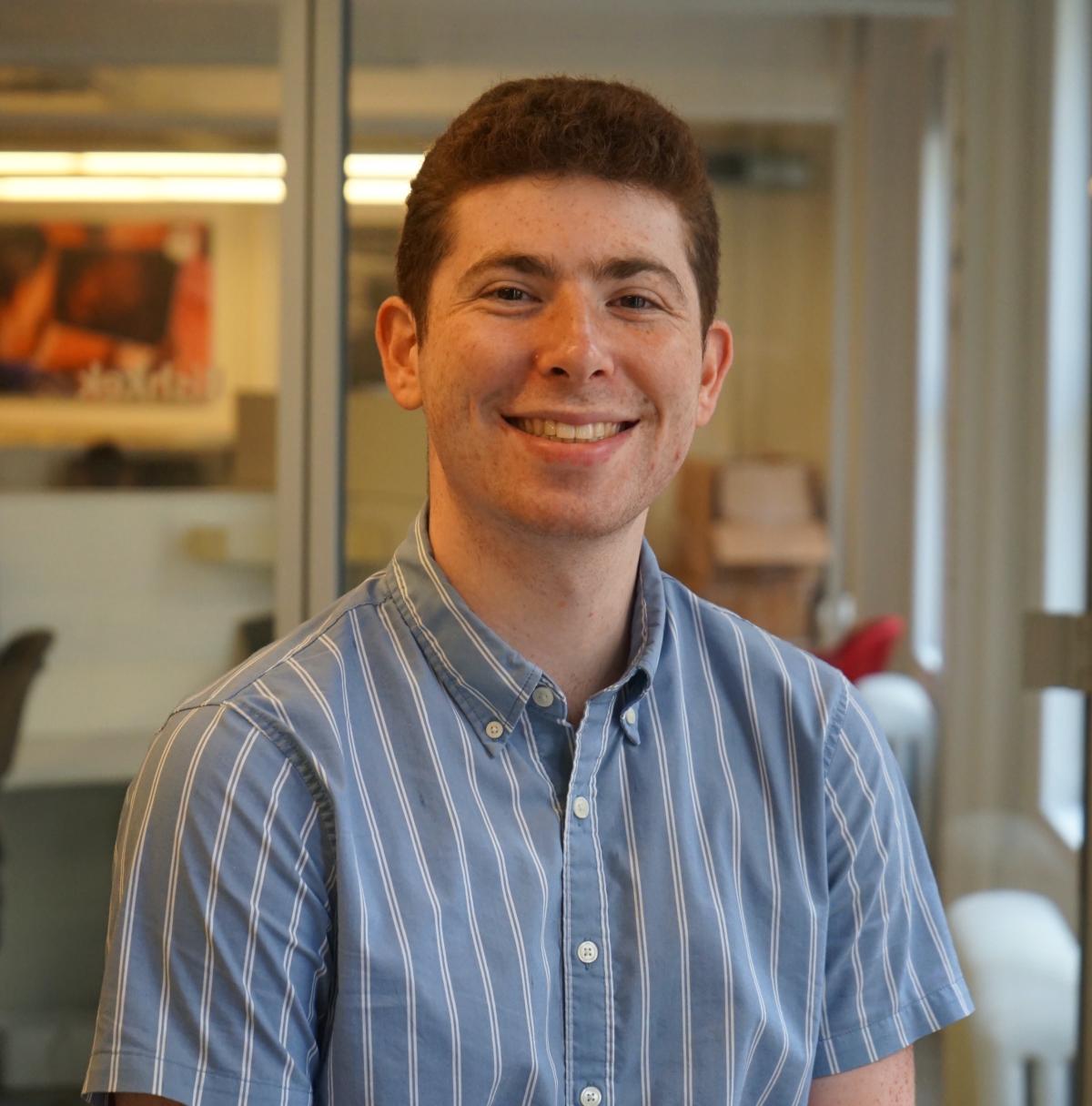
In Brief
- Jaffe (AB‘22) received financial support for a year of work at Physicians for Human Rights.
- Working in the research department, he contributed to timely human rights reports and training materials.
- At the year's end, he was permanently hired.
As a UChicago undergrad, Will Jaffe (AB‘22) dreamed of applying human rights knowledge from his courses and internship to meaningful work in the field.
In his first year as an alum, that dream came true, thanks to a Dr. Aizik Wolf Post-Baccalaureate Fellowship from the Pozen Center.
Supported by the fellowship's award money, Jaffe worked in the research department of Physicians for Human Rights (PHR), a nonprofit that leverages the expertise of health professionals to prevent human rights abuses.
“I have a deeper understanding than ever of how human rights isn’t just an abstract concept. It’s a framework that can be used to advocate for those who most need it. Your work can actually have real-world impact. I knew that before, but now I have been able to see it in action.”
Jaffe had already been a human rights intern at PHR, also with financial support from the Pozen Center. As a fellow, he took on considerably more responsibility, including:
- co-authoring a report on the effect of post-Roe abortion bans in Oklahoma, focusing on patient access to information about obstetric care and the ethical challenges confronting medical professionals
- helping to draft and edit a report on Russian war crimes against hospitals and medical personnel in Ukraine
- creating training materials for medical and legal professionals based on the new edition of the Istanbul Protocol, the international standard for investigating and documenting acts of torture
At the end of the fellowship, Jaffe accepted an offer to join PHR’s advocacy department.
“During my fellowship I experienced incredible professional development and received mentorship from leaders in the human rights field,” says Jaffe. “I have a deeper understanding than ever of how human rights isn’t just an abstract concept. It’s a framework that can be used to advocate for those who most need it. Your work can actually have real-world impact. I knew that before, but now I have been able to see it in action.”
Classroom Inspiration for Professional Path
Jaffe’s journey into human rights work began in his second year at UChicago, when he took Susan Gzesh’s “Introduction to Human Rights” course. Gzesh invited a survivor of torture at the hands of Chicago police officers to come speak to the class. This survivor recalled all the help he received from human rights advocates in securing his release and winning reparations payments from the city.
“That’s when I became very interested in human rights as a possible professional path,” Jaffe recalls. He was already a political science major; before long, he’d added a human rights minor, and was studying topics like transitional justice, decolonization, ethnic violence, and conflict onset, all of which he would later draw on at PHR.
Pozen Center Support for Success
Through his fellowship year, Jaffe received extensive professional support from the Pozen Center. It was a Pozen staff member who suggested he ask his supervisors in the research division whether he could spend some time in the advocacy department, hoping to learn more about how research can be used to push for policy change. Now, thanks to the good impression he made, that’s the department where he works full-time.
The Pozen Center also facilitated Jaffe’s preparatory training. Like all of the students the Center sends into the field, including fellowship winners and human rights interns, he received tips not just on topics applicable to all workplaces (like workplace etiquette), but also on concerns more unique to human rights work, like how to be sensitive to the needs of communities he might work with, how to avoid vicarious trauma himself.
“I did work with victims of torture, so that proved to be really crucial for me,” says Jaffe. “When you’re engaging with really difficult material related to people’s trauma, you need to be aware of how that can feel, for the people you’re working with and for yourself. The Pozen Center gave me the tools to deal with that.”
New Perspective on Career Trajectory
Prior to the Aizik Wolf Fellowship, Jaffe wasn’t sure about his future in the human rights field. “There were so many different pathways and topics available to choose from that it was hard to determine where to start,” he says. “But during my time with the Pozen Center, from intern to fellow, I was introduced to so many incredible people in the human rights field and gained an appreciation for the value of a law degree.” He now plans to pursue a degree in human rights law.
In PHR’s advocacy department, he has learned how to bring human rights research into policy conversations. His responsibilities have included drafting briefing materials for governments and other rights organizations, attending United Nations hearings, preparing advocacy strategies, and developing social media posts and material for the PHR blog.
“I know so much more about the human rights landscape now,” he says. “And I know more about how I can contribute, whatever path I end up taking.”
The Dr. Aizik Wolf Fellowship is awarded in even-numbered years to UChicago undergrads who have taken at least two Human Rights courses and who show a record of leadership, involvement, and commitment to human rights and social impact.
- Learn more about the Dr. Aizik Wolf Fellowship. In the current application cycle, students are eligible if they graduated in 2023 or will graduate in 2024.
- Apply by April 7 at 11:59 p.m. CT.
- Explore the Human Rights Internship Program. Priority for the Aizik Wolf Fellowship is given to applicants who have completed an internship.
.
